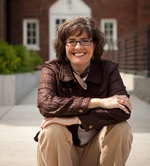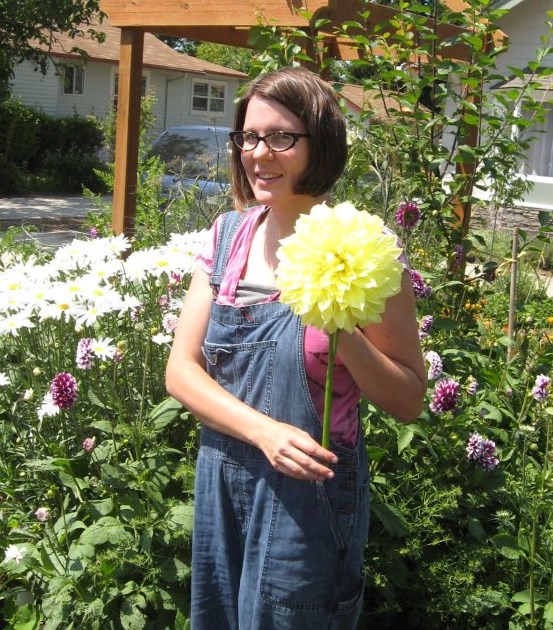Called to Change the World
I love seeing Christians use their jobs as launch pads into the kingdom. When we leverage our vocational power to help renew our cities and society, real transformation takes place. But with so many needs, it can be confusing to know how to jump in and use our gifts. How do we know what God's calling us to do?
Here are some steps that may help you discern the unique work God has for you:
First, get to know God and his passions and priorities. A lot of us say, "I want to know what my calling is." But in order to know our calling, we really need to get to know the Caller. As a friend of mine says, "The more we get to know the Caller, the better our listening muscles will be for hearing the Calling." So remember, God is the maker of heaven and Earth, and Jesus Christ is about the mission of renewing all things. God is at work in the world to advance beauty, wholeness, peace, reconciliation, security, and economic flourishing, and ultimately, intimacy with him.
Once we're connected to the Caller, we can then begin to consider the passions, personalities, life experiences, and gifts God has given us. We're handcrafted by God. He's given us unique interests and passions, and natural and spiritual gifts he wants us to utilize in this work of glorifying him and loving our neighbors.
When we pair our particular talents, gifts, and experiences with the needs around us, we advance kingdom priorities. We can leverage our vocational power right where we're at, in our jobs, in the organizations we work for, and in our communities. When we connect our faith with what we do from 9-5, five days a week, our lives help transform our industries and cities.
Here are three inspirational women from distinctly different fields who are living out their faith vocationally:
Nikki Heckman
Owner, Bistro-To-Go, Pittsburgh, Pennsylvania
Nikki is the owner of a restaurant in a North Side neighborhood of Pittsburgh called Bistro-to-Go. She is an amazing woman who is integrating her faith and work in several ways:
- Passion for community and bringing diverse people together. Nikki's restaurant is located in a transitional neighborhood that's economically challenged, yet near some commercial areas. Her choice of menu was deliberate: it's eclectic, with selections that can attract everybody from the business lunch crowd to the guy working part-time down the street.
- Intentional design to model transparency and authenticity. Nikki's restaurant has an open kitchen, which she calls the "fish bowl." You literally walk in the door and come upon a big glass counter showcasing lots of ready-made meals you can take. Just beyond that glass counter is the open kitchen. You can watch Nikki and her staff prepare sandwiches and soups. She designed the kitchen this way deliberately because she believes in the Christian values of vulnerability, authenticity, and openness. She's an evangelist at heart, and she wants her life to be an open window. She wants her customers to watch her work and interact with her staff, which sometimes includes seeing her get impatient with the employees, and then apologizing and asking for forgiveness. She lingers over the counter with customers, and asks what's going on in their lives. She also has daily prayer time with her staff.
- Practices that serve the community. One way Nikki serves her community is by teaching moms how to cook healthily on a limited budget. Also, there's a big wall in the back of the seating area that she calls the community wall. Once a month a different community nonprofit serving the North Side neighborhood is invited to put materials up on the wall to showcase work they're doing. They can put up pictures and fliers and information to recruit volunteers. If the nonprofit is doing a community event, she'll cater it at an affordable cost, and she also allows community groups to use the restaurant as meeting space when it's not open for business. She also partners with the city of Pittsburgh to hire inner city youth for summer internships. Nikki has been thoughtful on how to be a chef for the common good of her community.
Angela Baker
Stay-at-home mom, "The Teaching Garden," Portland, Oregon
Angela is married to a high school social studies teacher. They're a one-income, four-child homeschooling family living on a modest income. Some years ago, one of their daughters needed a significant amount of dental work, and the bill drove them into debt. The family turned for help to a local nonprofit called Birch Community Ministries (BCS). BCS is a cooperative that seeks to assist the working poor by providing access to a Costco-like warehouse filled with grocery and household items, which are donated by corporations and individuals. BCS issues memberships. If you qualify by income, you can join BCS for $50 a month, plus volunteer a couple of hours monthly to help stock shelves or pick up donations. Members receive approximately $500 worth of groceries and household goods for their $50 membership.
The Baker family was part of this ministry for some time, and it helped them save money, stretch their budget, pay off the dentist, and eventually save enough for a down payment on a small home after renting an apartment for years. They were excited about moving into their own home. Just after they moved in, though, they found out that one of the two community gardens that supplies fresh produce for BCS was going to close down. When
Angela heard about this, she and her family made a bold decision: they gave their yard to BCS. They turned the back, front, and side yards into a big community garden that produces hundreds of pounds of fresh fruits and vegetables for the nonprofit that had helped them so much.
Now BCS volunteers come to her home, called "The Teaching Garden," and she instructs them on the art of being productive "green thumbs." The Bakers are just an ordinary family—he's a teacher and she's a homeschool mom—but they thought creatively about the assets they have that they could share—in their case, their lawn. Combined with Angela's vocational talent as a knowledgeable gardener, they put their gifts to use for the common good of the community.
Gloria Nelund
Founder, TriLinc Global, Manhattan Beach, California
Gloria is a brilliant financier and international banker and broker. For years she oversaw the international division of a major bank, a demanding career that earned her a place in the million-mile frequent flyer club. A few years ago, Gloria took a sabbatical from work and asked God whether she was meant to continue in the finance field or do something different. She felt led to stay in the field and to start her own social enterprise. In 2008, she founded her own company called TriLinc Global. Her tagline of this creative enterprise could be "mobilizing middle class investors to encourage development of the middle class abroad."
Gloria is trying to create something for the middle class investor who has $5,000–10,000 to invest. In developing economies, if you're a baker, or a person who wants to start a small to medium size business that will hire a few people to provide certain goods or services, it's difficult to get capital. TriLinc Global matches investors who need a mid-size investment opportunity and the business entrepreneurs who need start-up capital that's more than a micro-loan but less than a huge commercial bank loan.
Countries that build a thriving middle class are far less likely to go to war or to collapse into civil conflict. Gloria's strategy recognizes that if we really want to promote peace and stability in the developing world, we need to grow the middle class. And the middle class is best grown by investment in these small- and medium-sized commercial investments. Gloria is creating a unique niche within the financial services market.
By adopting a thoughtful strategy for tapping into investment dollars that may be underutilized, and then directing those dollars toward businesses that most need them and have the least access to capital, Gloria's creating a double-bottom-line of financial parity and peace.
All of these women illustrate the creative ways we can put our callings into play for the common good. How will you use the unique gifts God has given you to serve him right where you are?

Amy L. Sherman
Dr. Amy Sherman is author of six books including Kingdom Calling: Vocational Stewardship for the Common Good, and is a senior fellow at the Sagamore Institute for Policy Research. Connect online at www.vocationalstewardship.org.
Read more articles that highlight writing by Christian women at ChristianityToday.com/Women
 Read These Next
Read These Next

 Cheeseburgers and Christian Music: What You Consume MattersThe similarities between your physical and spiritual habits
Cheeseburgers and Christian Music: What You Consume MattersThe similarities between your physical and spiritual habits









 Homepage
Homepage


